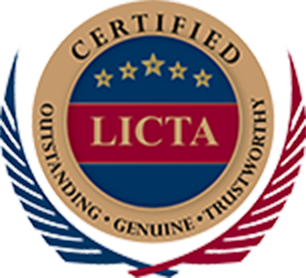Introduction
Malaysia Settlement Income Tax rules define how income or assets transferred under a settlement are taxed when the settlor retains control or benefits. Under Section 65(11) of the Income Tax Act 1967 (ITA), a “settlement” includes any disposition, trust, covenant, or transfer of assets or income, whether formal or informal.
This article explains what constitutes a settlement, who qualifies as a settlor, exclusions, and key tax implications under Malaysian law.
What Is a Settlement?
A settlement refers to any arrangement — written or unwritten — where one person transfers income or property to another person, often for little or no value.
It is commonly used in estate or tax planning where income or capital is shifted to a beneficiary with a lower tax rate.
However, the Director General of Inland Revenue (DGIR) may treat certain settlements as tax avoidance if the settlor retains power to revoke or continues to benefit indirectly.
Example: A father transferring rental income from his property to his child’s name while still managing the property and collecting rent could be considered a taxable settlement.
Definition under Section 65(11) ITA 1967
“Settlement” Includes:
- Any disposition, trust, covenant, arrangement, or agreement.
- Any transfer of assets or income made directly or indirectly.
“Settlement” Excludes:
| Exclusion Category | Description |
| (a) | Settlements made for valuable and adequate consideration, as determined by the DGIR. |
| (b) | Settlements resulting from a court order. |
| (c) | Agreements by employers to pay remuneration, pension, or lump sum to an employee or their dependants after death, if deemed fair and reasonable by DGIR. |
Who Is a Settlor?
Under Section 65(11), a settlor includes:
- Any person who creates or enters into a settlement.
- Any person who transfers money or assets directly or indirectly into a settlement for another’s benefit.
- Any person involved in reciprocal arrangements, where two parties agree to create settlements benefiting each other.
💡 Key Point: Determining who is the “settlor” depends on facts and circumstances — not just legal ownership.
Nature of a Settlement
A settlement may or may not involve a written agreement. It could be as simple as:
- A verbal arrangement,
- A gift or transfer of property, or
- An understanding between family members about sharing income.
The essential element is transfer of benefit — giving something for free or for less than market value.
Exclusions from Settlement
Certain transactions are not treated as settlements under the ITA.
1️⃣ Commercial Transactions
Normal business dealings or transfers made for full and adequate value are excluded.
Example: Paying a sibling fair market value for a property is not a settlement.
2️⃣ Court-Ordered Settlements
Transfers resulting from court decisions (e.g., divorce or inheritance rulings) are excluded.
3️⃣ Employer Death Benefits
Payments made by employers to the deceased employee’s dependants (pension or lump sum) are excluded if fair and reasonable in DGIR’s opinion.
Key Takeaways
- Settlement includes any transfer or arrangement where income or assets move between parties.
- Settlor = person initiating or indirectly funding the settlement.
- Exemptions apply only to commercial, court-ordered, or employer-related payments.
- DGIR may attribute settlement income back to the settlor if control is retained.
- Always document the purpose and terms of settlement clearly.
ANC Group – Your Personal Tax Advisor
Tax consulting is the core service of ANC Group. Our tax professionals provide clients with comprehensive tax support and guidance. We offer tax consulting and compliance services for expatriates, entrepreneurs, and listed and non-listed companies.
Our tax consulting services include business tax, transaction tax, personal tax, and corporate income tax. We don’t just guide you in interpreting and applying complicated taxation rules, but to explore new opportunities and business trends.
ANC Group keep you abreast with Malaysia tax updates and any changes in the local regulations.
We work closely with industry specialists, authorities, and associated professionals within ANC Group to provide the best-in-class integrated tax planning solutions. ANC specialists coordinate the accounting and taxation services to bring your business to success.
If you need professional tax advisory services regarding the Malaysia Income Tax Act 1967, our team is ready to assist you. Contact us here to discuss how we can support your business.









